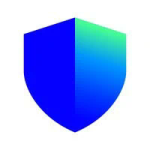The Comprehensive Exploration of Quantum Computing: Principles, Applications, and Future Prospects
**Introduction to Quantum Computing**
Quantum computing, an interdisciplinary domain that amalgamates principles from quantum physics and computer science, has garnered substantial attention since the late 20th century. With the capacity to process information in fundamentally different ways than classical computers, quantum computers promise to solve complex problems that remain intractable for conventional systems. This article delves into the essential principles of quantum computing, its potential applications, and the challenges ahead in realizing its full capabilities.
**Fundamental Principles of Quantum Computing**
At the heart of quantum computing lies the concept of quantum bits, or qubits. Unlike traditional bits, which exist in a state of either 0 or 1, qubits can exist in superposition, allowing them to represent both values simultaneously. This property exponentially increases computational power, as a system of n qubits can represent 2^n states at once.

1. **Superposition**: The principle of superposition allows qubits to exist in multiple states at the same time. This is analogous to spinning a coin, which is not purely heads or tails until it lands. In quantum computing, the ability to maintain this multiple-state condition enables quantum computers to perform many calculations in parallel.
2. **Entanglement**: Qubits can also be entangled, meaning the state of one qubit can depend on the state of another, regardless of the distance between them. This phenomenon leads to correlations that classical systems cannot replicate, paving the way for intricate calculations that are highly efficient and fast.
3. **Quantum Gates**: Similar to logical gates in classical computing, quantum gates manipulate the states of qubits. These gates are the building blocks of quantum circuits, performing operations that correlate with quantum mechanics. Quantum algorithms are constructed by arranging sequences of these gates to perform specific computations.
4. **Measurement**: When a qubit is measured, it collapses from its superposition state into one of its basis states (0 or 1). The probabilistic nature of this measurement is a fundamental aspect of quantum programming, often requiring strategies to minimize measurement-induced errors.
**Quantum Algorithms and Problem-Solving**
Quantum algorithms leverage the unique properties of qubits to tackle problems that are prohibitively complex for classical computers. Some notable quantum algorithms include:
1. **Shor’s Algorithm**: Developed by mathematician Peter Shor, this algorithm efficiently factors large integers, a task that underpins the security of many encryption systems. Shor’s algorithm showcases the potential for quantum computers to break widely-used cryptographic protocols by rendering classical factoring methods useless in comparison.
2. **Grover’s Algorithm**: Proposed by Lov K. Grover, this algorithm offers a quadratic speedup for unstructured search problems. While classical algorithms require O(N) time to search a database, Grover’s algorithm can achieve this in O(√N) time, demonstrating another area where quantum computing outstrips classical approaches.
3. **Quantum Simulation**: Quantum computers are particularly adept at simulating quantum systems. This has vast implications for materials science, chemistry (e.g., simulating molecular structures), and potentially the development of new drugs, allowing researchers to explore complex interactions at unprecedented speeds.
**Applications of Quantum Computing**
The potential applications of quantum computing span a wide range of fields. Some prominent areas include:
1. **Cryptography**: The implications of quantum computing for cryptography are profound. As discussed, algorithms like Shor’s challenge the integrity of RSA encryption. Conversely, quantum key distribution (QKD) uses the principles of quantum mechanics to create secure communication channels, as any eavesdropping would disturb the system and reveal the presence of an intruder.
2. **Artificial Intelligence and Machine Learning**: Quantum computing can enhance machine learning by improving data processing speeds and finding patterns in large datasets more efficiently. Quantum algorithms can facilitate faster model training and potentially enable new types of neural networks uniquely suited for quantum systems.
3. **Optimization Problems**: Industries as varied as logistics, finance, and telecommunications utilize optimization algorithms for complex problem-solving. Quantum computing can provide exponential speed-ups for certain optimization problems, greatly enhancing decision-making processes and resource allocation.
4. **Drug Discovery**: The pharmaceutical industry stands to benefit significantly from quantum computing. By simulating molecular interactions at the quantum level, researchers can predict how drugs will interact with target proteins, accelerating the drug discovery process and reducing costs.
5. **Financial Modeling**: Quantum computing’s ability to analyze vast datasets and complex models positions it as a valuable tool in finance. Portfolio optimization, risk analysis, and option pricing are areas where quantum algorithms can outperform classical counterparts.
**Challenges in Quantum Computing**
Despite quantum computing’s promise, several formidable challenges must be addressed:
1. **Error Rates and Decoherence**: Qubits are susceptible to errors caused by decoherence and noise in the environment, which can corrupt quantum computations. Developing error-correction methods and improving qubit stability are critical to realizing practical quantum systems.
2. **Scalability**: Building scalable quantum systems is a significant hurdle. Currently, most quantum computers possess a limited number of qubits. Increasing qubit counts while maintaining coherence and manageable error rates presents engineering and material science challenges.
3. **Quantum Software Development**: The development of robust quantum algorithms and software tools is still in its early stages. The unique properties of quantum mechanics necessitate new programming paradigms, which requires extensive research and collaboration between computer scientists and quantum physicists.
4. **Resource Availability**: Quantum hardware is often expensive and requires specialized technologies. As quantum computing evolves, ensuring accessibility and reducing costs will be crucial for broader adoption, particularly for smaller organizations.
5. **Regulatory and Ethical Considerations**: The rise of quantum computing raises profound ethical and regulatory questions, especially concerning security and privacy. The potential to break existing cryptographic protocols necessitates a reevaluation of information security practices at the governmental and corporate levels.
**The Future of Quantum Computing**
Looking forward, the future prospects of quantum computing are promising yet uncertain. Several pivotal developments are anticipated in the coming years:
1. **Hybrid Quantum-Classical Systems**: The integration of quantum computing with classical systems may provide near-term solutions to practical problems. Such hybrid systems could leverage the strengths of both architectures to tackle complex tasks more efficiently.
2. **Advancements in Quantum Algorithms**: Ongoing research will likely yield new quantum algorithms that could further enhance computational capabilities across various domains. Discoveries in mathematical heuristics and novel algorithmic strategies will play a vital role.
3. **Commercial Applications**: As quantum computing progresses, commercialization is expected to accelerate. Sectors like telecommunications, finance, and healthcare are likely to adopt quantum solutions, leading to a new wave of innovation and efficiency.
4. **Quantum Internet**: The concept of a quantum internet, enabled by entanglement and QKD, envisions a new era of secure communications. This network could alter the landscape of information sharing, enhancing security and privacy.
5. **Education and Workforce Development**: The growing field of quantum computing necessitates a skilled workforce. Educational initiatives to train new scientists, engineers, and programmers in quantum principles will be vital for sustaining growth and innovation in this domain.
**Conclusion**
Quantum computing stands at the forefront of technological evolution, promising a paradigm shift in how we approach computation and problem-solving. The principles of superposition, entanglement, and quantum gates underpin this innovation, enabling algorithms that surpass classical computing limitations. From cryptography and AI to drug discovery and financial modeling, the potential applications of quantum systems are vast and varied.
However, challenges remain in error management, scalability, algorithm development, and accessibility. As we navigate these hurdles, collaborative efforts across disciplines will prove essential. The unfolding journey of quantum computing heralds immense possibilities, reshaping industries and rethinking what is feasible in the realm of computation. The future could witness extraordinary breakthroughs, making quantum computers not just theoretical constructs but integral components of our technological landscape.


